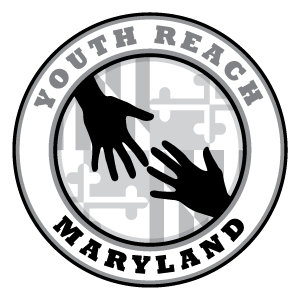Youth REACH MD releases findings of unaccompanied youth and young adults experiencing homelessness across Maryland
Nearly 3,000 youth and young adults were identified as under the age of 25, not in the care of a parent or guardian, and lacking a fixed, regular, and adequate nighttime residence, according to Youth REACH MD’s most recent survey on youth homelessness and housing instability conducted across 19 Maryland counties and Baltimore City.
The survey took place in the spring of 2018, through a combination of local surveying efforts and review of annual homeless services administrative data. Results indicate that 2,957 youths and young adults struggle with homelessness or other housing issues.
Youth REACH MD is an ongoing effort, funded by the Maryland Department of Housing and Community Development with the support of the Maryland General Assembly and coordinated by The Institute for Innovation and Implementation at the University of Maryland School of Social Work, to conduct a regular survey and census of youth who are experiencing homelessness. The goal is to better understand how many youth are experiencing homelessness, who they are, and their experiences, so that state and local agencies and service providers can understand the policies, services, and interventions that will meet their needs and focus resources to end and prevent youth homelessness in Maryland.
“Youth experiencing homelessness are a critically under-noticed and underserved demographic of a population that is already marginalized, so, under Governor Larry Hogan’s leadership, we have increased our efforts to address their unique needs,” said Maryland Department of Housing and Community Development Secretary Kenneth C. Holt. “The Youth REACH survey provides valuable insight that can help our agency and our partners develop innovative and effective solutions to prevent youth homelessness, and it has the potential to serve as a national model.”
Youth REACH MD provides a way for youth to share their experiences and their needs. Of those surveyed, 68 percent of youth reported having to move multiple times within the past two months, often moving between a friend’s house, a shelter or motel room, another family member’s house, and outside in a park or on the street. Youth reported that this was often because of fighting or violence at home. This makes it challenging for youth to stay in school or hold down a job, and puts them at greater risk for other negative outcomes. They also reported needing supports beyond just housing, including food (38 percent), job training (36 percent), transportation (27 percent), educational support (24 percent), and healthcare (22 percent), among others.
Researchers believe these numbers are still an undercount, and that even more youth and young adults in Maryland are on their own and struggling to find a safe, stable, and adequate place to sleep each night. Even still, the numbers show a high level of need for housing, employment, education, and other supports for youth experiencing homelessness, and the need for communities across Maryland to work together to meet these needs.
“Having the data is first step towards addressing the problem of youth homelessness,” explained Amanda Miller, MSW, Youth REACH MD project director with The Institute for Innovation and Implementation. “It has been really inspiring to see people and organizations coming together to collect this data in communities across the state, which has helped build the coalitions that are needed to take action. We are seeing local communities as well as the state legislature and state agencies take steps towards addressing youth homelessness as a result of this data and developing more supports for youth in Maryland, and that’s what this work is all about.”
___________________________________________
The Institute for Innovation and Implementation, in the University of Maryland, Baltimore School of Social Work, is committed to building research-based, sustainable, and transformative child-and family-serving systems and services. We work in partnership with government agencies; provider, community, and family- and youth-run organizations; and other leaders and stakeholders to integrate systems and improve outcomes for and with children, youth, young adults, and families.
Founded in 1807, the University of Maryland, Baltimore is Maryland’s only public health, law, and human services university, dedicated to excellence in education, research, clinical care, and public service. UMB enrolls 6,500 students in six nationally ranked professional schools — medicine, law, dentistry, pharmacy, nursing, and social work — and an interdisciplinary Graduate School. The university provides more than $40 million each year in uncompensated care to Maryland citizens, and receives more than $500 million in extramural research funding annually. For more information about the University of Maryland, Baltimore, visit www.umaryland.edu.
Contact: Mary Phelan
Phone: 410-706-3803
Email: MaryPhelan@umaryland.edu
